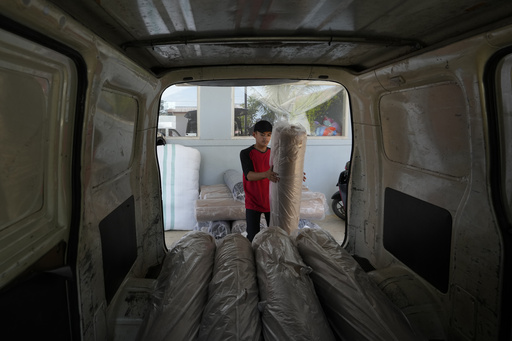JAKARTA, Indonesia — Indonesian manufacturers are grappling with the influx of Chinese products into the country, causing a significant impact on local businesses. Garment makers, both small home-based producers and larger factories, have sought assistance as they face stiff competition from low-cost apparel and textiles imported from China, amplified by online purchases.
In response to the crisis, Indonesian Minister of Trade Zulkifli Hasan announced plans in July to implement import tariffs of up to 200% on certain Chinese products like textiles, clothing, footwear, electronics, ceramics, and cosmetics. The goal is to shield local businesses from closure and prevent massive job losses, particularly in micro, small, and medium-sized enterprises.
However, China stands as Indonesia’s largest trading partner, with bilateral trade surpassing $127 billion in 2023. The Indonesian government is cautious about the repercussions of imposing high tariffs, fearing potential retaliation from China. To navigate this delicate situation, a task force has been established to oversee issues related to specific imports.
The flood of Chinese products has already taken a toll on Indonesia’s textile industry, leading to the closure of numerous factories and leaving thousands of workers unemployed from January to July 2024. In regions like Bandung in West Java province, known for its traditional textiles, Chinese imports have caused widespread job losses and financial instability among workers.
The rise in Chinese imports can be attributed partly to trade tensions between the U.S. and China, resulting in increased American tariffs on Chinese goods. Moreover, the surge reflects escalating trade activities within Asia due to various free trade agreements and reduced demand for Chinese exports in Western markets.
Similar concerns have been raised by industry groups in Thailand regarding the deluge of inexpensive Chinese products causing significant harm to domestic producers’ sales. In a swift response, the Thai government imposed a 7% value-added tax on all imported goods, temporarily replacing the previous threshold-based tax policy.
Indonesia previously attempted to regulate over 3,000 imported goods, including food ingredients and electronics, but faced opposition from local industries citing obstacles in the production process. Consequently, consideration is now being given to imposing substantial tariff increases instead.
Both small and large Indonesian manufacturers are feeling the impact of the situation, with calls for differentiated import duties on finished goods versus raw materials. The government’s challenge lies in finding a balance between safeguarding local businesses and maintaining the supply chain necessary for domestic production.



